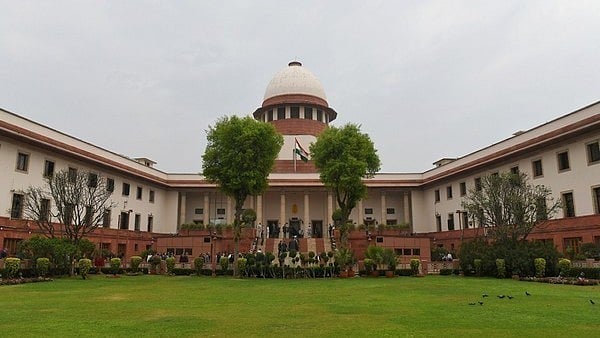
The Supreme Court of India.
Credit: PTI Photo
New Delhi: The Supreme Court has said there cannot be any conviction on the basis of common intention if there is no meeting of minds and preplanning of the offence, as it set free three Uttarakhand police constables in a case of murder of a woman in a fake encounter in 2004.
A bench of Justices B R Gavai and Augustine George Masih said the prosecution has failed to place on record any evidence to show that the appellants herein had common intention with accused head constable Jagdish Singh prior to him shooting at the deceased resulting in her death.
In its judgment on January 28, 2025, the court emphasised, that for convicting the accused with the aid of Section 34 of the IPC, the prosecution must establish prior meetings of minds.
It must be established that all the accused had preplanned and shared a common intention to commit the crime with the accused who has actually committed the crime. It must be proved that the criminal act has been done in furtherance of the common intention of all the accused, the bench said.
The court set aside the High Court's judgment which reversed acquittal of the appellants by the trial court in the case related to shooting down of the wife of complainant Sanjeev Chauhan on the evening of November 15, 2004 in Rishikesh. It restored the trial court's judgment, acquitting the appellants Surendra Singh, Surat Singh and Ashad Singh Negi.
Acting upon an information about smuggling of illicit liquor in a Maruti car, the police party led by head constable Jagdish Singh indicated to stop the car. As the complainant failed to comply with the direction, a bullet was fired by Jagdish which hit his wife, the co-passenger sitting on the front seat, resulting into her death.
The trial court convicted only Jagdish of murder charge and sentenced him to life imprisonment. The High Court, upon the appeal by the state government, held all the four as guilty in the case.
Senior advocate Devadatt Kamat, appearing for the appellant, submitted that the High Court has grossly erred in convicting them with the aid of Section 34 of the IPC. He said there is no evidence to show that the present appellants had shared a common intention with Jagdish Singh.
Examining the matter, the bench said the trial court had recorded that the three appellants were merely acting on the command of the senior head constable.
The trial court also said even if it was assumed that the remaining three accused had accompanied accused Jagdish Singh, there was no evidence to come to a conclusion that the appellants herein who were in car had shared a common intention with him to fire upon or to kill the deceased.
It had also found that the prosecution had failed to prove the mental involvement of the appellants with accused Jagdish Singh beyond the shadow of reasonable doubt.
"However, this well-reasoned finding of the trial court has been upset by the High Court on the ground that the remaining three accused were sitting in the same vehicle along with accused Jagdish was sufficient to convict them with the aid of Section 34 of the IPC," the bench said.
The court also pointed out it is a settled legal position that the interference with the finding of acquittal recorded by the trial judge would be warranted by the High Court only if the judgment of acquittal suffers from patent perversity; that the same is based on a misreading or omission to consider material evidence on record; and that no two reasonable views are possible and only the view consistent with the guilt of the accused is possible from the evidence available on record.
The court allowed the appeal and set aside the High Court's judgment. In the case, the main accused Jagdish Singh died during the pendency of the appeal.
